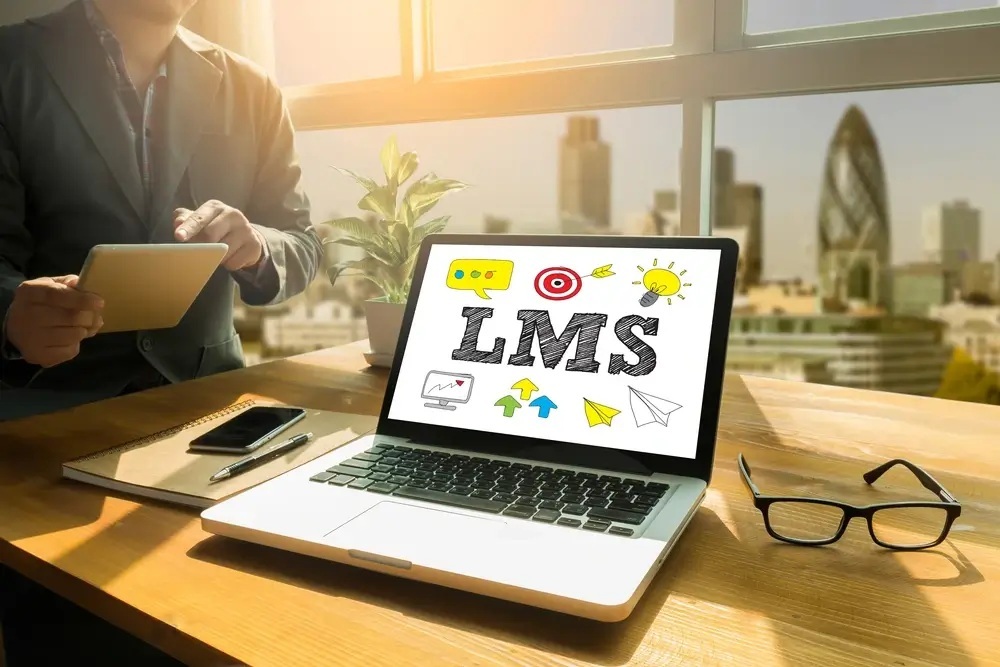Learning Management Systems (LMS) are software applications that allow organizations to manage the learning process. It helps them track, and report on the progress of their training programs.
LMS is a software application for the administration, documentation, tracking, reporting, and delivery of educational courses and training programs. It manages learning processes by providing an integrated platform to facilitate communication between students and instructors to ensure the smooth delivery of training programs.
LMS can be used by corporates as well as institutes or universities in order to provide their employees with professional development opportunities through on-demand learning modules. In addition to this, it helps them monitor their employees’ progress through assessment reports which are generated automatically based on each employee’s performance during different stages of his/her journey towards achieving specific objectives within your organization’s learning program (eLearning).
Contents
What exactly is LMS?
Learning Management Systems (LMS) are software applications for the administration, documentation, tracking, reporting, and delivery of educational courses and training programs. They allow an organization to manage their training and development programs by allowing them to create courses in a central location within an LMS system such as Microsoft Office 365 or Google Drive.
This tool is used by corporates; institutes; universities; government agencies etc., to train their people through various means such as webinars or conferences where instructors will attend live sessions from different locations across the globe via video conferencing technology like Skype etc., online tutorials on how best perform certain tasks which would otherwise take days if not weeks depending upon your experience level at workplace like your boss might ask you questions about some technical topic that may even require some research before being able to answer correctly so this would mean spending lots more time than necessary on something unrelated but still important enough so that if done incorrectly could cost us our job(s).
In other words, LMS means that a piece of software manages the learning process.
LMS stands for Learning Management System. It is a software application that manages the learning process. LMS can be used by corporates, institutes, and universities to train, coach, and educate their people through e-learning platforms.
In other words, what does it mean when someone says ‘LMS’? Let’s take an example: say you are working for a company and they want all their employees to have a basic knowledge of their products so that they can do their job better. So they’ve decided to create an online course with all these products listed in it (including videos). Now if we look at this logically then there are three things happening here: 1) The company has decided on creating an online course; 2) They need someone else who knows how these courses should be created; 3) They need someone else who will create these courses based on what we have learned above!
Who can benefit from an LMS?
LMS is used by corporates, institutes, and universities to train, coach, and educate their people. It can be used by any organization that needs to train its employees or students.
LMS is a software application that allows companies to manage their employee training programs in an easy-to-use digital platform.
The software could be for online learning or for classroom-based courses.
Online learning LMSs are web-based and can be used on any device, such as laptops, tablets, and smartphones. They’re also easy to access from wherever you are in the world because they’re connected to the internet. This makes them ideal for people who want to learn new skills when they have time but don’t want to go into a classroom environment at all times (or cannot attend class due to work obligations).
Classroom-based LMSs are installed on a computer at each student’s desk rather than being accessed through an app downloaded onto their devices; this means that students will need an internet connection or Wi-Fi connection before they can log into the system if they aren’t using physical access points like USB sticks/external hard drives etc…
It is used by corporates, institutes, and universities to train, coach, and educate their people.
It is used by corporates, institutes, and universities to train, coach, and educate their people. It can be used to manage the learning process for employees or students. The purpose of LMS is to track the progress of students and teachers in order to provide them with an effective learning environment.
A learning Management System is a critical tool that ensures smooth delivery of training programs
Learning Management Systems are a critical tool for any organization that delivers training programs. The benefits of an LMS include:
- Ensuring smooth delivery of training programs, both online and in-person
- Helping you manage your learning resources effectively and efficiently, including documents, videos, and more
The best way to find out if an LMS is right for you is to try it out. You can either use one of our free trial accounts.
Why Use a Learning Management System? And its benefits.
- LMS helps you to track the progress of your learners.
- LMS helps you manage your learners.
- LMS helps you manage your training programs.
- LMS helps you manage your training sessions and resources available for students as well as instructors who want to use them in their classrooms or workshops, etc.
Conclusion
Learning Management Systems have many benefits, and they can be used for different types of training. If you’re looking for an LMS that can help you train your workforce for success in any industry or company, it might be worth considering.
